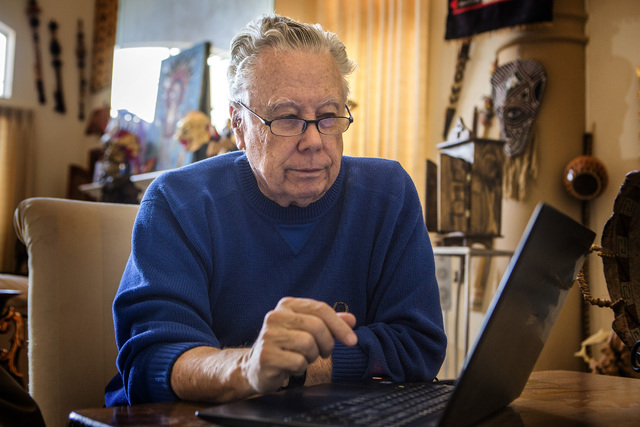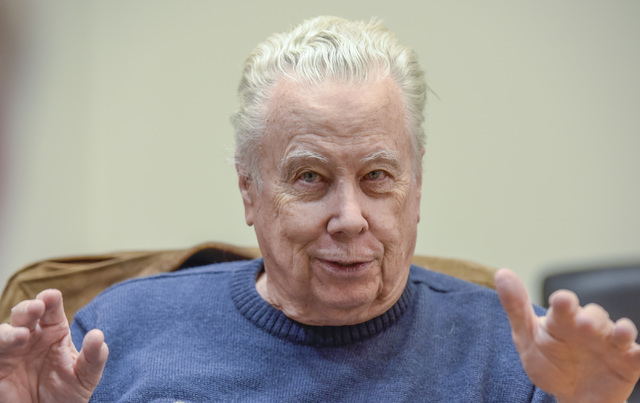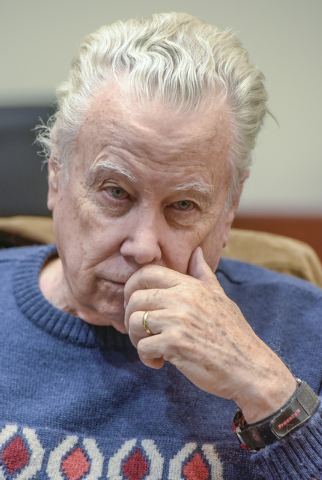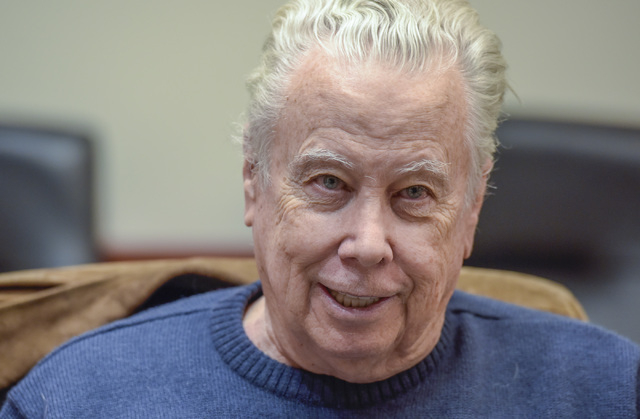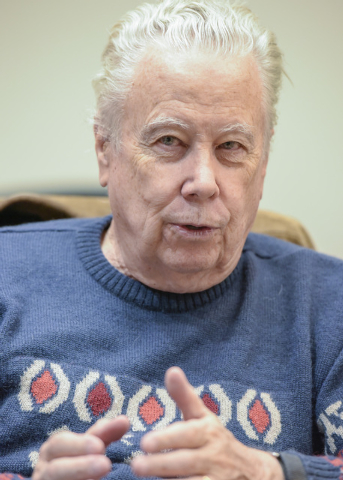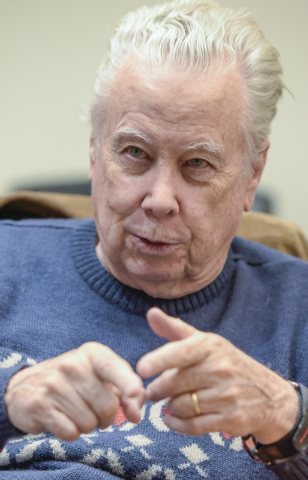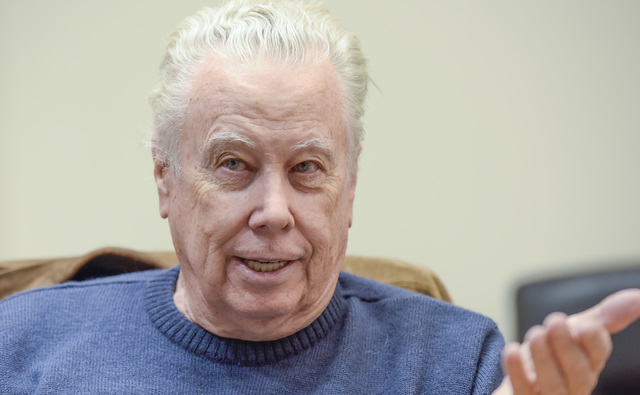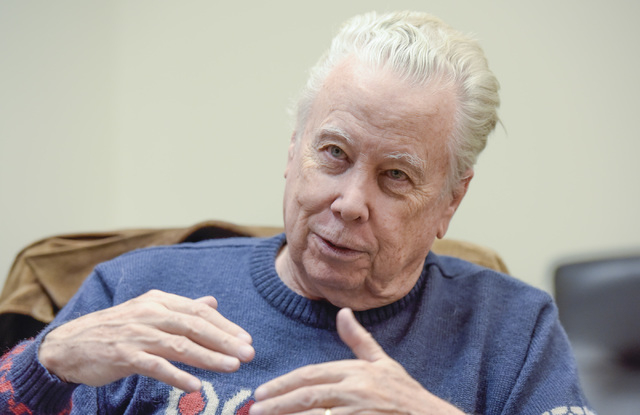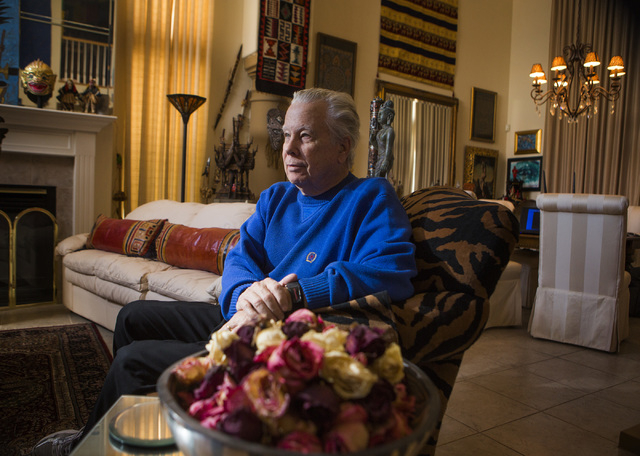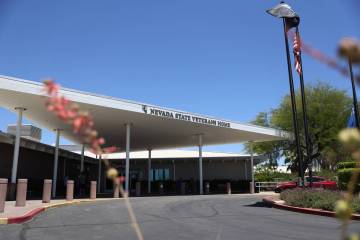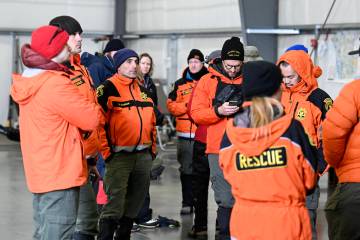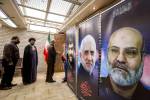CIA sometimes overlooks Islamic extremists, Vegas intelligence expert says
Islamic extremists bent on violent acts against free-speech nations are sometimes overlooked by intelligence agencies because the agencies reject important information that could derail attacks, says a former CIA adviser and intelligence expert.
Instead, the agencies set their sights on targets that fit scenarios they believe will happen, failing to realize that “anything that does happen, can happen. Intelligence reports tend to ignore them if they don’t fit,” said John B. Alexander, a member of the Las Vegas Chapter of the Association of Former Intelligence Officers.
Inherently, those charged with analyzing intelligence information sometimes have “scotomas,” or areas of diminished vision.
“They get this target ‘fixation,’ ” he said. “Here’s the scenario. So we will look for data that support our proposed scenario. So the ‘outliers’ fall off and don’t get incorporated into the analysis. … These are things that they don’t believe can happen but do.”
Alexander is a retired Special Forces commander who served in Vietnam and Thailand, and a former adviser to the CIA, the Special Operations Command, and the National Intelligence Council. He is known for his insights on paranormal experiences and has written two books on various phenomena, including one titled, “UFOs: Myths, Conspiracies and Realities.” He is also featured in the Jon Ronson book, “The Men Who Stare At Goats,” that was made into a movie and billed as a comedy.
He discussed challenges of U.S. and international intelligence agencies in interviews in the aftermath of this month’s terrorist attacks in France.
Alexander said the Kouachi brothers who carried out the Jan. 8 massacre of a dozen staff members at a satirical Paris newspaper and their Islamic extremist associate, Amedy Coulibaly, who gunned down four more and held hostages at a kosher grocery store, are examples of how terrorists slip through the cracks of intelligence networks because they were low priorities even though their violent intentions had been known.
The brothers were on the U.S. “no-fly” list. Cherif Kouachi had been convicted and jailed in France in 2008 for trying to recruit fighters for the Iraq insurgency.
“We also basically missed ISIS because of target fixation on al-Qaida and did not realize other groups would come up,” Alexander said, referring to the Islamic State movement that swelled through social media recruitment.
And sometimes intelligence agencies, for legal reasons, don’t share information that could be used to prevent attacks, Alexander said.
He noted, however, that fusion centers, where information about potential threats is exchanged among homeland security authorities and response agencies at state, federal and local levels, have been developed since the 9/11 Commission identified the information-sharing problem. One fusion center is in Las Vegas.
LEGACY OF SURPRISES
In a December presentation to the Association of Former Intelligence Officers during a meeting at a North Las Vegas resort, Alexander gave historic examples of shortfalls caused by target fixation that resulted in surprises to the intelligence community because little credence was given to events that could happen and eventually did happen.
The list includes the Soviet Union’s launch of the Sputnik satellite on Aug. 21, 1957; the overthrow of the shah of Iran in 1979; the fall of the Berlin Wall on Nov. 9, 1989; and development in 1985 of the Soviet Typhoon class submarine that U.S. officials thought, based on the size of the construction facility, was too big to withstand being crushed from deep ocean pressures.
“The information was all there, we just didn’t believe it,” he said.
The classic case is the 9/11 hijacked jetliner attacks on New York’s World Trade Center and the Pentagon.
Alexander happened to be at Special Operations Command headquarters at MacDill Air Force Base in Florida that day, Sept. 11, 2001, for a meeting of the command’s Science Advisory Committee.
“All the information to predict this was available. We just didn’t connect the dots,” he said.
“What I said then is, ‘You’re going to find that all of the data points to predict this were present.’ What happened was the 9/11 Commission came out and you find the agencies were legally restricted from talking to each other. Supposedly a lot of that has changed. … I know for a fact that some of this is still going on — not sharing information.
“Information is power. And when you throw on top of that the rice bowl issue — funding — there is great incentive not to share information because you want to increase your budget in the long term,” he said.
Alexander said budgets for intelligence agencies are “based on how good they are. And, how good they are is based on the quality of information. At all levels you’re competing with other organizations for funding.”
SOCIAL MEDIA RECRUITING
In fairness to the agencies, he said the “flip side” is that the amount of resources needed to track individuals who could some day become terrorists is “ascensive,” or tends to rise. The number of potential suspects could be as high as 5,000.
“Look at the numbers here in the U.S. You go back to 9/11, we know some of those,” he said. “We now know that we have hundreds that have gone to Syria or Iraq to fight with ISIS and they’ve come back,” he said, adding that U.S. authorities are obligated to be politically correct and must avoid labeling them as potential terrorists.
“Until they’ve actually committed the crime, we can’t do anything,” he noted.
“We have the same issue in Somalia. We had people of Somali descent who were going over and coming back. We had several Americans killed in Somalia. … This gets to a whole different level of conversation (about) things that I put out years ago saying the nation state is a failing concept,” he said.
“We look at the geography or happenstance of birth as it were sacrosanct when, in fact, you find now that organizations come together based on belief systems,” Alexander said.
Information technology now at the finger tips of extremist groups has also been a tool to propagate members.
“You’re seeing this with the ISIS recruitment,” he said. “Even 10 years ago you couldn’t have done that. This is the downside in social media.”
So how should U.S authorities change the way they gather, use and share intelligence information to defend citizens against the specter of increased terrorist attacks?
“First you’ve got to admit you’ve got a problem, just like Alcoholics Anonymous,” Alexander said. “We’ve refused to deal with the issue. If you listen to the politicians, they don’t even want to say, ‘fundamentalist Islam.’ So you’ve got to admit that it’s not being dealt with internally. The other part is public awareness, presenting the information” so it can be shared and used.
Contact Keith Rogers at krogers@reviewjournal.com or 702-383-0308. Find him on Twitter: @KeithRogers2.
RELATED:
Here’s the latest on terror threats around the world
Charlie Hebdo edition sells out; al Qaida claims attack
3.7M people rally for anti-terrorism in France, some in Las Vegas



